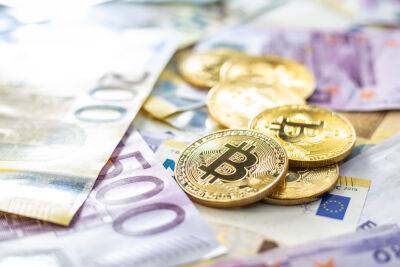UK forces crypto exchanges to report suspected sanction breaches
Crypto exchanges must report suspected sanctions breaches to UK authorities under new rules brought in amid concerns that bitcoin and other cryptoassets are being used to dodge restrictions imposed in response to Russia’s invasion of Ukraine.
Official guidance was updated on 30 August to explicitly include “cryptoassets” among those that must be frozen if sanctions are imposed on a person or company. As well as digital currencies, such as bitcoin, ether and tether, cryptoassets could include other notionally valuable digital assets such as non-fungible tokens.
The rules, set by the Treasury’s Office of Financial Sanctions Implementation, will mean crypto exchanges are committing a criminal offence if they fail to report clients designated for sanctions. Under the rules, crypto exchanges must immediately act if they suspect that one of their customers is under sanctions, or if they suspect a breach of sanctions – giving them similar obligations to professionals such as estate agents, accountants, lawyers and jewellers.
Financial sanctions on people and companies linked to the regime of Vladimir Putin have been among the UK’s most prominent responses to the invasion of Ukraine.
Targets for sanctions have included oligarchs and relatives with direct interests in cryptoassets. These have included Vladimir Potanin, the “nickel king” who was previously Russia’s second richest man, who backed Atomyze, a Swiss blockchain business. Said Gutseriev, son of the oligarch Mikhail, owned a stake in a Belarus-based cryptocurrency exchange until August 2021, before he was hit with sanctions on the same day as Potanin in June. The metals billionaire Oleg Deripaska has previously urged Russia’s central bank to allow bitcoin to be used as a
Read more on theguardian.com


 theguardian.com
theguardian.com




















